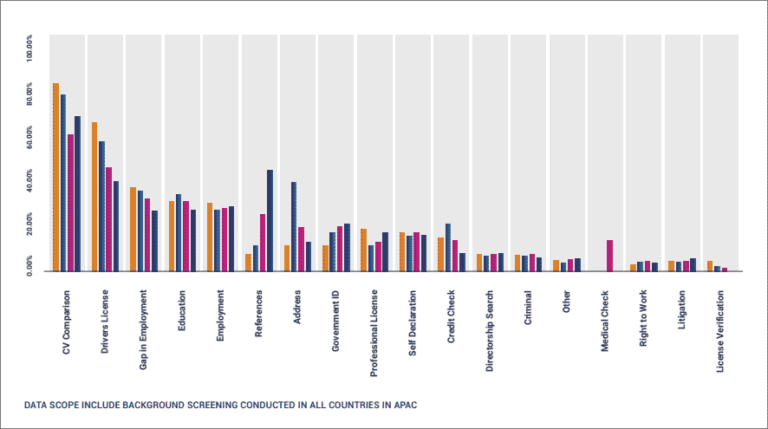Few industries are as high-touch as retail and hospitality. Many of these workers engage on a personal level with consumers every day and have direct access to credit card details and other personal information while assisting customers.
Ironically, employees with the greatest access to customers are often the workers who undergo the least amount of pre-employment screening, if any. What’s worse, workers who might have criminal intentions know this and may use it to their advantage. Here’s what employers wanting to protect their customers, their workplace and the integrity of their business need to know.
Employee risk is unique in these industries.
Retail and hospitality businesses are fuelled by entry-level jobs—think: sales associates, desk clerks, porters, inventory stockers, valet drivers, etc.—that often require little to no experience or education. Unfortunately, some employers equate “minimal hiring requirements” to “minimal hiring investment” and choose to save money by not performing background checks on these workers.
Don’t make this mistake. Below are employee-related risks that are unique to the retail and hospitality industries. Any amount of risk is enough to dent the bottom line of a thriving business; however, taken together without any consistent form of mitigation, these risks can pose a very real threat to a company’s customers, workforce and its business reputation.
Internal theft.
While it’s difficult to find reliable numbers on internal theft within the retail industry for China and Hong Kong, the Australian National Retail Association offers an eye-popping statistic. Whereas an average shoplifter steals $438 in merchandise, employees lift more than four times that amount for an average of $1,890.1 Types of internal theft can range from stealing merchandise and skimming money from the cash drawer to something called “sweet hearting,” where workers give friends and family free products or employee discounts.
Here, a pre-employment background check can help in a couple of ways. First, it can reveal past convictions for theft-related crimes. Also, since internal theft is sometimes not reported to the police, a reference check or employment verification can help uncover prior issues and incidents with other employers.
Access.
In the hospitality industry, workers have direct access to customers’ hotel rooms, personal belongings, vehicles and more. With that access, comes opportunity. At any point, valet drivers can easily take a guest’s vehicle on a joyride. A housekeeper can enter a room while a guest is away and steal money, jewelry, clothing and other things that aren’t secured in a safe.
In this case, background checks can help validate a candidate’s identity to ensure they are who they say they are before they’re given access to customers or their vehicles and hotel rooms. Also, background screening can help provide valuable clues about an employee’s integrity.
Background screening tips for retail and hospitality employers. While jobs in these industries range from entry-level positions to management and C-suite executives, it’s important to have a top-down background screening strategy for all positions. Here are a few simple ideas.
- Consider performing a standard, baseline background check on all employees. This might include a mix of instant or near-instant searches to verify identity, right to work and high-level crimes or terrorist activities. Results are returned quickly to keep the hiring process moving.
- Create consistent screening packages based on risk and access. Different jobs come with different levels of risk. For example, employees who work in a hotel kitchen may have no access to sensitive information or guests, while retail store managers may literally have keys to the business. A smart way to simplify the screening process while addressing role-specific risk is by grouping job into categories based on various levels of risk/access and creating background check packages that best mitigate the risk. For example, this might involve creating a “basic” package for low-risk jobs, a “standard” package for mid-level risk and an “advanced” package for high-risk positions.
- Work with a knowledgeable background screening provider. Background check availability, as well as background screening regulations and restrictions throughout the Asia Pacific vary, so it’s critical to work with a screening provider that has intimate, “feet on the street” insight into local compliance and customs. This helps ensure that screening programmes are streamlined and optimised to deliver the most complete results and candidate insights in the shortest amount of time.
At First Advantage, our associates live and work throughout the Asia Pacific region and possess deep knowledge of the retail and hospitality sectors, as well as local protocols and processes for efficiently performing the most complete and compliant employee background checks. If you’re ready to start screening your employees or you want to simplify and/or strengthen an existing background check programme, contact us today to learn more.
For information about creating role-specific background screening packages within these industries, download our Retail and Hospitality Industry Tip Sheet.


